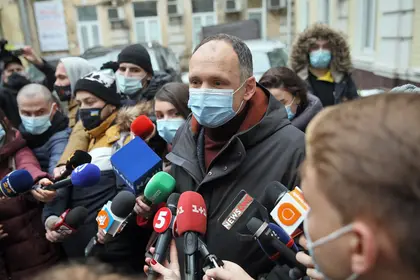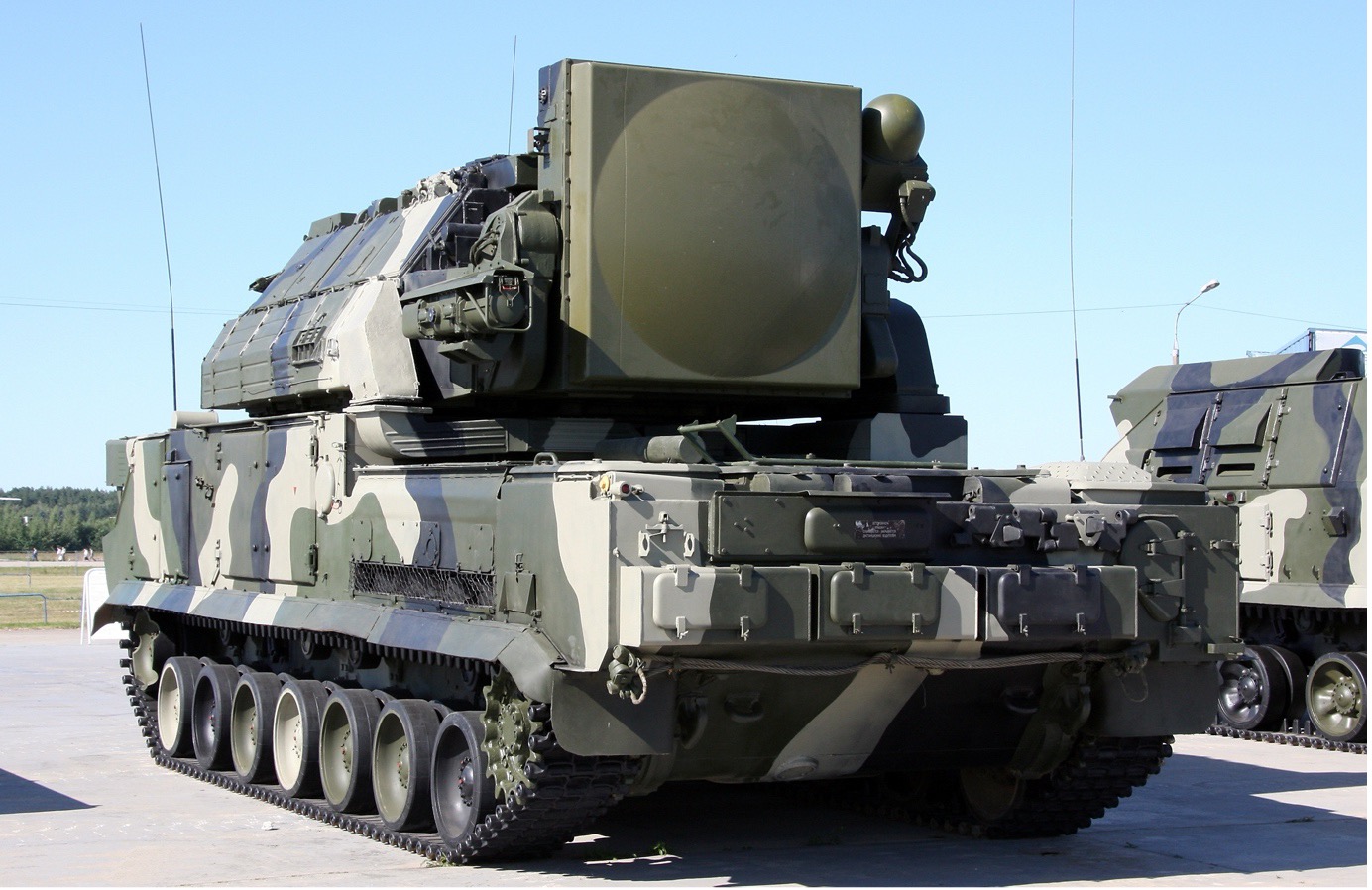President Volodymyr Zelensky’s controversial deputy chief of staff Oleh Tatarov will have a lot of say over who gets picked to be the next chief anti-corruption prosecutor, according to a May 13 report by Radio Free Europe/Radio Liberty’s investigative program Schemes.
According to the Schemes report, Tatarov essentially handpicked the members of the commission that will choose the prosecutor who will supervise all cases brought by the National Anti-Corruption Bureau.
JOIN US ON TELEGRAM
Follow our coverage of the war on the @Kyivpost_official.
If a politically compromised candidate gets appointed, they will be able to block anti-corruption cases against top officials.
Tatarov and the President’s Office did not respond to requests for comment.
Tatarov, who was charged with bribery, has been able to skate around a possible court case thanks to decisions by the office of Prosecutor General Iryna Venediktova. Despite the charge, he’s still in charge of law enforcement policy at the President’s Office.
Old associates
Tatarov personally chose the members of the commission, who met him at the President’s Office before being appointed, the Anti-Corruption Action Center said, citing its sources. Tatarov and Venediktova later met with the commission in October.
Numerous members either know Tatarov or are connected to him.
Commission member Bohdan Romanyuk, a law professor at the National Transport University, used to be Tatarov’s Ph.D. dissertation supervisor, Schemes reported. Romanyuk declined to comment on whether he was acquainted with Tatarov, saying that he knew many people.
Tatarov and commission member Oleksiy Drozd, a legal scholar at the National Academy of Interior Affairs, co-wrote a scientific article. He did not respond to a request for comment.
Commission head Kateryna Koval, who is also the deputy head of the Union of Lawyers of Ukraine, and Tatarov were part of the same working group created by then Justice Minister Oleksandr Lavrynovych under then President Viktor Yanukovych in 2012. She did not respond to a request for comment.
Another commission member, Vyacheslav Navrotsky, a law professor at the Ukrainian Catholic University, works with Tatarov and Venediktova at a presidential judicial reform commission. Navrotsky said he knows Tatarov “visually” but he is not sure whether Tatarov knows him.
Tatarov also has links to Grigory Mamka, a lawmaker from the pro-Kremlin Opposition Platform-For Life party and a member of parliament’s law enforcement committee.
Mamka’s party delegated Andriy Hudzhal, another member of the commission to select the anti-corruption prosecutor. Moreover, Mamka’s law enforcement committee appointed the whole commission. Tatarov wrote an opinion on Mamka’s PhD thesis and was his official scientific opponent.
Tatarov may also be interested in blocking some of the candidates for the chief anti-corruption prosecutor.
One of them, anti-corruption prosecutor Roman Symkiv, used to lead the Tatarov bribery case before being replaced by Venediktova.
Another one, prosecutor Oleksandr Bozhok, has received threats from Yanukovych’s ex-deputy chief of staff Andriy Portnov, while Tatarov was Portnov’s lawyer. Bozhok testified that Tatarov promised to have him jailed due to his influence on the State Investigation Bureau.
Kostin’s role
The Anti-Corruption Action Center and StateWatch argue that the President’s Office and pro-government commission members are planning to appoint Andriy Kostin, a member of parliament from Zelensky’s Servant of the People party, as the chief anti-corruption prosecutor. The President’s Office and Kostin did not respond to requests for comment.
Commission head Koval used to work with Kostin at an expert council at the National Association of Lawyers of Ukraine. Koval said she was acquainted with Kostin.
Meanwhile, commission member Navrotsky works with Kostin at a presidential judicial reform commission.
According to the rules of the competition, candidates must be politically neutral. Kostin should not be eligible due to his leading role in Zelensky’s party, Olena Shcherban, a lawyer at the Anti-Corruption Action Center, told the Kyiv Post.
Kostin could have a conflict of interest since he represents Servant of the People and heads the Verkhovna Rada’s legal policy committee, letting him influence law enforcement.
Other controversies
Meanwhile, in 2011 Romanyuk, his fellow commission member Olena Busol and Yanukovych ally Raisa Bohatyryova co-wrote a book about fighting corruption. Bohatyrova, a former secretary of the National Security and Defense Council and health minister, is a suspect in a corruption case.
Busol claimed that Bohatyrova’s co-authorship was imposed on her by the academy that printed the book. Romanyuk downplayed his cooperation with Bohatyrova, arguing that their partnership was minimal.
Romanyuk and Busol also worked at a research center at Yanukovych’s presidential administration.
The law bans anti-corruption officials who served under Yanukovych from running as candidates for the chief anti-corruption prosecutor. However, members of the commission for choosing the prosecutor are exempt from that rule.
Commission member Drozd is an incumbent police official. The law bans law enforcement officials from being commission members.
Drozd has not yet taken part in commission meetings. He did not respond to a request for comment.
In January Zelensky gave an award to commission member Yevhen Sobol, prompting concerns that this compromises his independence. Sobol claimed that he remained independent.
Tatarov case
The official allegedly influencing the prosecutor selection, Tatarov, was charged in December with bribing a forensic expert when he was a lawyer at state construction firm Ukrbud. The National Anti-Corruption Bureau of Ukraine (NABU) published WhatsApp correspondence that made the bribe evident.
Ex-Ukrbud CEO Maxim Mykytas, a suspect in a theft case, has also testified that Tatarov gave a $600,000 bribe to employees of the High Anti-Corruption Court in 2019 to release Mykytas on a minuscule bail, law enforcement sources told the Kyiv Post. Additionally, Mykytas has testified that he had allegedly given a bribe through Tatarov to judges of Kyiv’s Solomyansky Court, the sources said.
But Venediktova blocked the charges against Tatarov in December 2020 by replacing the group of prosecutors in the Tatarov case twice. She then transferred the case from the NABU to the politically controllable Security Service of Ukraine.
In February, a court refused to extend the Tatarov investigation, and prosecutors effectively killed it by missing the deadline for sending it to trial.
Competition for anti-graft prosecutor
The commission that chooses the anti-corruption prosecutor is dominated by pro-government members, while foreign experts have a much smaller role. The commission consists of four experts nominated by international organizations and seven members delegated by parliament.
The Anti-Corruption Action Center argued that the selection of parliament’s nominees broke the law that requires them to have an impeccable reputation. The center also said they have no genuine experience in the anti-corruption sphere.
Pro-government commission members can easily promote loyalists and block any independent candidates, anti-corruption activists say.
Editor’s Note: This report is part of the Investigative Hub project, within which the Kyiv Post monitors investigative reports in the Ukrainian media and brings them to the English-speaking audience, as well as produces original investigative stories. The project is supported by the National Endowment for Democracy.
You can also highlight the text and press Ctrl + Enter




